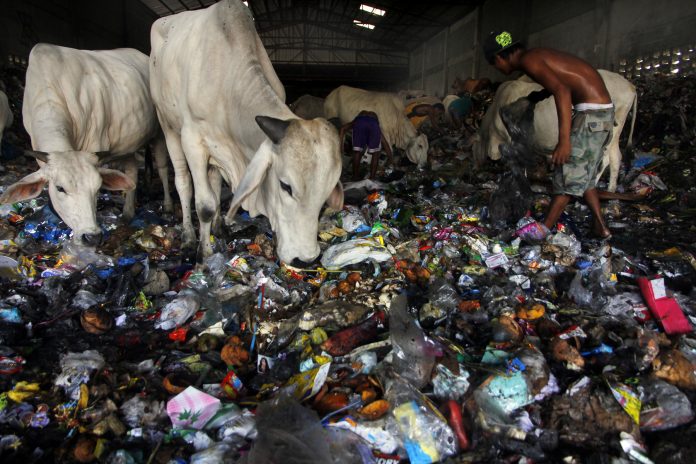Environmental watchdog group BAN Toxics, along with other environmental protection advocates, called on the Philippine government to promote “zero waste” as a principle and practice to reduce toxic and waste pollution in the country in time for “Zero Waste Month.”
January has been declared “Zero Waste Month” by virtue of Presidential Proclamation No. 760, signed in 2014 by former President Benigno Aquino III.
The proclamation promotes designing and managing products and processes to systematically avoid and eliminate the volume and toxicity of waste and materials. It also aims to conserve and recover all resources, instead of indiscriminately disposing or burning them.
Proclamation No. 760 states that zero waste is a goal that is ethical, economical, efficient and visionary to guide people in changing their lifestyles and practices to emulate sustainable natural cycles, where all discarded materials are designed to become resources for others to use.
“It has been 10 years since Presidential Proclamation No. 760 was signed into law, and yet the issues of toxics and wastes still exist. In order to achieve and embrace zero waste in our lives, we must work together by implementing and promoting toxics and wastes reduction programs, especially at the community level,” said Rey San Juan Jr, executive director of BAN Toxics.
Republic Act 9003 or the Ecological Solid Waste Management Act of 2000 was enacted to adopt a systematic, comprehensive and ecological solid waste management program which shall:
- Ensure the protection of public health and environment;
- Utilize environmentally-sound methods that maximize the utilization of valuable resources and encourage resource conservation and recovery;
- Set guidelines and targets for solid waste avoidance and volume reduction through source reduction and waste minimization measures, including composting, recycling, re-use, recovery, green charcoal process, and others, before collection, treatment and disposal in appropriate and environmentally sound solid waste management facilities in accordance with ecologically sustainable development principles;
- Ensure the proper segregation, collection, transport, storage, treatment and disposal of solid waste through the formulation and adoption of the best environmental practice in ecological waste management excluding incineration;
- Promote national research and development programs for improved solid waste management and resource conservation techniques, more effective institutional arrangement and indigenous and improved methods of waste reduction, collection, separation and recovery;
- Encourage greater private sector participation in solid waste management;
- Retain primary enforcement and responsibility of solid waste management with local government units while establishing a cooperative effort among the national government, other local government units, non-government organizations, and the private sector;
- Encourage cooperation and self-regulation among waste generators through the application of market-based instruments;
- Institutionalize public participation in the development and implementation of national and local integrated, comprehensive and ecological waste management programs; and
- Strengthen the integration of ecological solid waste management and resource conservation and recovery topics into the academic curricula of formal and non-formal education in order to promote environmental awareness and action among the citizenry.
The act mandates local government units to prepare and implement a 10-year solid waste management plan that is consistent with the national solid waste management framework.
The LGUs shall divert at least 25% of all solid waste from waste disposal facilities through re-use, recycling, and composting activities and other resource recovery activities and the waste diversion goals shall be increased every three (3) years thereafter.
“Zero Waste is an ecological way to reduce our toxic and waste pollution problem in the country. We need to institutionalize environmental awareness among citizens and integrate ecological conversion into our hearts,” BAN Toxics said in a statement.









